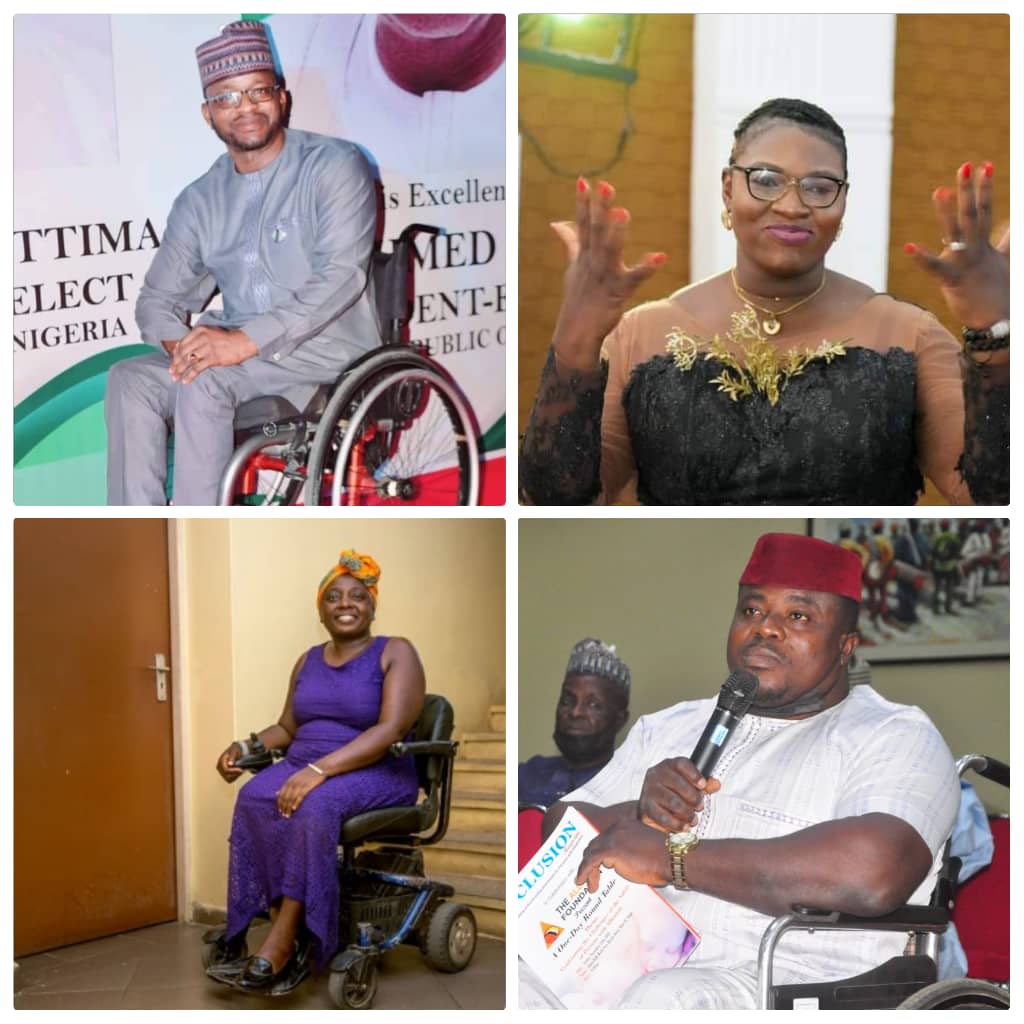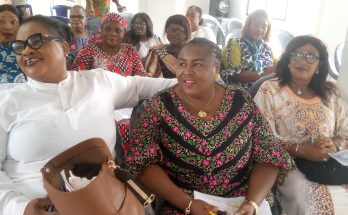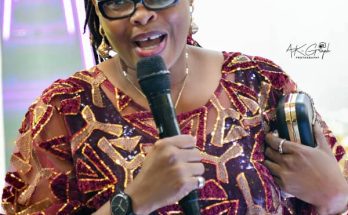In the heart of Nigeria’s economic landscape, a pressing challenge persists – the struggle for inclusive employment, exacerbated by the stalled implementation of the Disability Act. This feature by ENE OSHABA unravels the narratives, the untold struggles, and the urgent need for a paradigm shift in the Nigerian workforce to embrace inclusivity for all.
Government’s Failure
In a nation striving for progress and inclusivity, the employment landscape for Persons with Disabilities (PWDs) in Nigeria remains a tale of unmet promises and unfulfilled rights.
At the forefront of advocating for change is Agbo Christian Obiora, the Executive Director of Qualitative Magazine, a disability-focused publication, and Chairman of the National Association of Persons with Physical Disabilities Federal Capital Territory (FCT) chapter, Abuja.
Obiora points out a glaring paradox: the government, responsible for upholding the law, is itself a violator. The employment of PWDs, especially in the presidency, seems conspicuously absent. “Appointment is part of employment, and I am calling on the government to fulfill the 5% employment quota for PWDs,” urges Obiora.
Yet, the journey to employment for PWDs in Nigeria is fraught with challenges. Cultural beliefs cast a shadow, viewing disabilities as a consequence of past wrongs. Persistent myths surround disability, perpetuating the perception that PWDs are recipients of charity rather than contributors to society. “No matter how you build your capacity, you are seen as lacking,” laments Obiora.
“There is foot dreagging in the.employment of PWD’s because we find ourselves in a country with cultural believes that PWD’s are looked at as someone who committed some sin in the past world and there is a lot of existing myth about disability and this affect the way people view PWD’s and no matter how you try to build your capacity you are looked at as someone who is just in need of arms.
“This stigma is still what is affecting the employment of PWD’s and so no matter how you build your capacity you are looked at as those who do not have the capacity,” he lamented.
“Even me, when I go to some places people ask me “what can I do for you” they dont look at me as someone who has something to offer but someone who is coming to ask for one help or another and that is exactly what is affecting PWD’s.
“Section 29 of the Disability Act stated that 5% of employment should be given to people with disabilities there is a lot of awareness on this but its implementation has been so low in MDA’s. Also no parameters to measure the level of implementation
“The appointment of persons with disabilities has not been observed especially in the presidency which means that the law set by the government they themselves are not implementing it. They are the first in violating the law. Appoitnment is part of employment and I am calling on the government to make up the 5% in appointment,” said Obiora
The Act
In January 2019, President Muhammad Buhari assented to the Discrimination Against Persons with Disabilities (Prohibition) Bill 2018. The bill, which is now an act of the parliament, prohibits all forms of discrimination on ground of disability and imposes a fine of N1,000,000 for corporate bodies and N100,000 for individuals or a term of six months imprisonment for violation.
The then Senior Special Assistant to President Muhammadu Buhari on National Assembly Matters (Senate), Mr. Ita Enang, had in a statement after the signing said the act provides for a five-year transitional period within which public buildings, structures or automobile are to be modified to be accessible to and be usable by persons with disabilities, including those on wheelchairs.
The statement reads in part: “The Act further provides: ‘’Before erecting any public structure, its plan shall be scrutinized by the relevant authority to ensure that the plan conforms with the building code.
“A government or government agency, body or individual responsible for the approval of building plans shall not approve the plan of a public building if the plan does not make provision for accessibility facilities in line with the building code.
“An officer who approves or directs the approval of a building plan that contravenes the building code, commits an offence and is liable on conviction to a fine of at least N1,000,000 or a term of imprisonment of two years or both.’’
The presidential aide said discrimination is prohibited in public transportation facilities and service providers are to make provision for the physically, visually and hearing impaired and all persons howsoever challenged.
“This applies to seaports, railways and airport facilities. The rights and privileges include education, healthcare, priority in accommodation and emergencies.
“Furthermore, all public organisations are to reserve at least 5 % of employment opportunities for these persons. The National Commission for Persons with Disabilities is also established in Section 31 with Executive Secretary as the head,” he said.
Since the Act was made law not much difference has been recorded in the employability of Persons With Disabilities (PWDs) as most of them still wallow in poverty and result in begging for arms.
Disability in Employment status
In the context of employment, a disabled person is an individual whose prospects of securing, returning to, retaining and advancing in suitable employment are substantially reduced as a result of a duly recognized physical, sensory, intellectual or mental impairment.
As contained in the Unizik Law Journal vol.13, 2017 titled “Disability discrimination in employment: comparative legal solutions for Nigeria”, almost all jobs can be performed by the disabled because given the right conditions, most people with disabilities can be productive.
Many of the obstacles which disabled people face arise not from their disability but rather from the way they are perceived in society and the inconsiderate organization of work places.
The journal noted that barriers which often prevent disabled people from getting jobs include inaccessible work places, restrictive rules relating to employee training and work practices which are impossible for people .
People with disabilities make up an estimated one billion or 15 per cent of the world population. About 80 per cent are of working age and yet, are frequently denied access to work.
The Journal pointed our that the disability index in Nigeria has not been formally captured in any recent census or survey, hence the reliance on data statistics and estimates.
Consequently, the World Health Organization (WHO) estimates that there are roughly 25 million persons living with disabilities in Nigeria with up to 3 million of them so severely afflicted that they are unable to independently function physically and/or socially.
In 2013, the Nigerian National Assembly gave an estimated figure of 20 million people living with disability , an optimistic figure which falls below the world estimate of 15% of the global population living with disability .
The Forgotten Promise
The Disability Act stands as a beacon of hope, promising a future where inclusivity isn’t a choice but a right. Yet, its potential lies dormant, overshadowed by bureaucratic complexities and a lack of urgency.
Unfortunately, four years on, women living with disabilities continue in lamentations in the old order as no visible sign of the implementation of this beautiful act which originally should improve on the wellbeing of people with disability especially women who most times suffer more the brunt .
The Founder , Advocacy for Women with Disabilities Initiative
Patience Ogolo Dickson, in an exclusive interview said that the disability bill which was signed into law aims to address the issue of discrimination among PWDs, but People with Disabilities still experience huge discrimination in Nigeria
Similarly, the founder and chief executive officer of Cedar Seed Foundation and the Network of Disabled Women Lois Auta, said the barriers still glares them in the face amidst all efforts to prove their capabilities.
Recalling when she contested for a political position she said: “I enrolled into the School of Politics, Policy and Governance (SPPG) which helped to shape and redefine my plans in Politics and my manifesto have undergone review and rebranding in preparation for the 2023 election but the barriers women face in Politics affects women with disabilities the more.
Auta-Udonkanta had contested for the House of Representatives, Abuja Municipal Area Council (Bwari constituency) under the platform of Accord Partz in 2019 but lost to the People’s Democratic Party (PDP) candidate Micah Yohanna Jiba.
She again revealed her ambition to re-enter the political race to contest the 2023 House of Representatives election which unfortunately has been a tight battle for women.
“I want to challenge the status quo, I want to make changes, I want to change the mindsets of Nigerians to be inclusive even though the political system is not favourable for women,” she stated.
On her part, the National President of Deaf Women Aloud Initiative (DWAI) Hellen Beyioku-Alashe, noted that the disability act gives deaf women the right to access in every sector including the education, health, judiciary, and everywhere.
She however regretted that not much improvement in this areas have been achieved three years since the bill was made law, decrying that deaf people and people living with disabilities in general have continued to be discriminated against.
“As a woman I don’t have access everywhere, we have been discriminated for so long and we are demanding our right to life. We are always victims of death because no interpreters between us and doctors rather, when we go to the hospital the doctors touch us like babies to know what is wrong with us because there are no interpreters at the hospital.
“Even when there is an information we cannot hear because even when we watch the television, there are no interpreters so we don’t know what is going on around us, she decried.
“People with disabilities face enormous attitudinal, physical and informational barriers to equal opportunities in the world of work. Compared to non-disabled people, they experience higher rates of unemployment and economic inactivity, insufficient social protections and are at greater risk of abuse and exploitation at work. It becomes extremely difficult to break out of the vicious cycle of extreme poverty and neglect in which majority of the disabled live,’ she added.
Continuing, Hellen Beyioku-Alase revealed that most deaf women die from childbirth because they aren’t able to assess healthcare services due to communication barriers between the deaf and health workers.
“There are no sign language interpreters at Nigerian hospitals , saying if the deaf are employed at the hospitals as sign language interpreters it will reduce the level of unemotional among the deaf and also ease the communication barriers between the deaf and health workers.
“Most deaf women avoid hospitals and some think that midwives are wicked but honestly, we don’t see midwives as being wicked we are only frustrated and all we need is to break that communication barrier.
“We want to access health care, but the truth is that the communication barrier always frustrate us. And when you are talking, we are looking at you because we don’t understand you. And you don’t understand us.
“That is why must of the time, we say the nurses are wicked. If I go there in the morning, I will be sitting there like a goat. They will not attend to me. It is just the communication barrier. That is what I see here. We are frustrated because of that barrier and we say the nurse is evil, she is wicked.
“When I ask some deaf women, how did you put to bed, did you go to any health Centre? Some, say no. Sometimes, they give birth at home, you can imagine how risky that is.
Personal experience
Sharing her personal experience she narrated how she gave birth to her second child in the hospital, going through excruciating labour pain yet could not understand what the Doctor was saying to her.
“I was lying down on the bed, the doctor was saying ‘madam Push’, I was just looking at the doctor. I was just shouting because I was in serious pain. The nurses were hitting me, I did not know what they were saying. When I saw they doctor touch his head, that was when I understood that the baby’s head was close. And then before you know it, my baby came out.
“And then they had to stitch me when I did not have Episiotomy, I was trying to ask them why they were doing that, they said yes, my baby’s head was big so she gave me a tear,” Beyioku-Alashe narrated.
“All these are problems of communication barrier. So in my next pregnancy, I did not go to the hospital, I went to the church, that is where I put to bed. Because I did not want to go to the hospital. Most of my women go through the same thing.
“It’s not because of poverty that I don’t want to go to hospital. it’s because I am frustrated. I have the money to pay but the needs of deaf people especially women are not factored into employment,” she added.
Rays of Hope
Amidst the daunting challenges PWD’s continue to amplify their voices in advocating for their rights having the understanding that they must continue to speak out to get the desired change in order to live a more meaningful lives.
Obiora maintained that the Disability Act is not entirely a non inclusion status with government establishing the national commission of persons with disabilities shows that efforts were being made “and that commission is saddled with responsibility of ensuring that there is implementation of the disability act though implementation is still very low”.
“There is a lot of awareness on this but its implementation has been so low in Ministries, Departments and Agencies (MDA’s) and no parameters to measure the level of implementation
The President Bola Ahmed Tinubu has approved the appointment of Mr. Mohammed Abba Isa, as Special Assistant (SA) to the president on disabilities matters this shows that efforts are being made to ensure Inclusivity.
“Inclusion in employment is a work in progress; a lot of awareness has been created and gradually people are begining to accept disability inclusion, and getting aware of our rights. We haven’t achieved so much but something is goin on and we can see that people are talking about the rights of PWD’s and embracing it too so this has really gone a long way for PWD’s,” he said.
Government tasked
However, he has tasked government to adequately implement the act in its entirety, saying these policies on inclusive employment, education, reproductive health rights of PWD and the national policy of albinism and disability.
“Government should do that because it would curb the non inclusion of persons with disabilities bring them to the decision tables where planning and policies are made and they should not forget the economic policies because whenever they want to make such policies they should consult with PWDs’ because they are most hit by economic policies
For instance, “On the fuel subsidy removal PWD’s are the most hit because it affects every aspects of their lives. If other persons are spending one naira for transportation PWD’s spend ten naira and this has increased the more; it is a big problem,” he said.
“A wheelchair user cannot go out alone he must go out with an aid and so is a blind person so they are paying double transportation.
“Also, a wheelchair user cannot go out with the cheapest means of transportation and the kind of transportation they use is very expensive even as they will pay double. The government should see reasons and try as much as it can to create a stand alone palliative for persons with disabilities and provide employment for them too,” he urged.
This investigation is for GENDER ACCOUNTABILITY AND INCLUSIVITY in Nigeria project for Gender Strategy Advancement International (GSAI) supported by the Open Society Initiative for West Africa (OSIWA).




